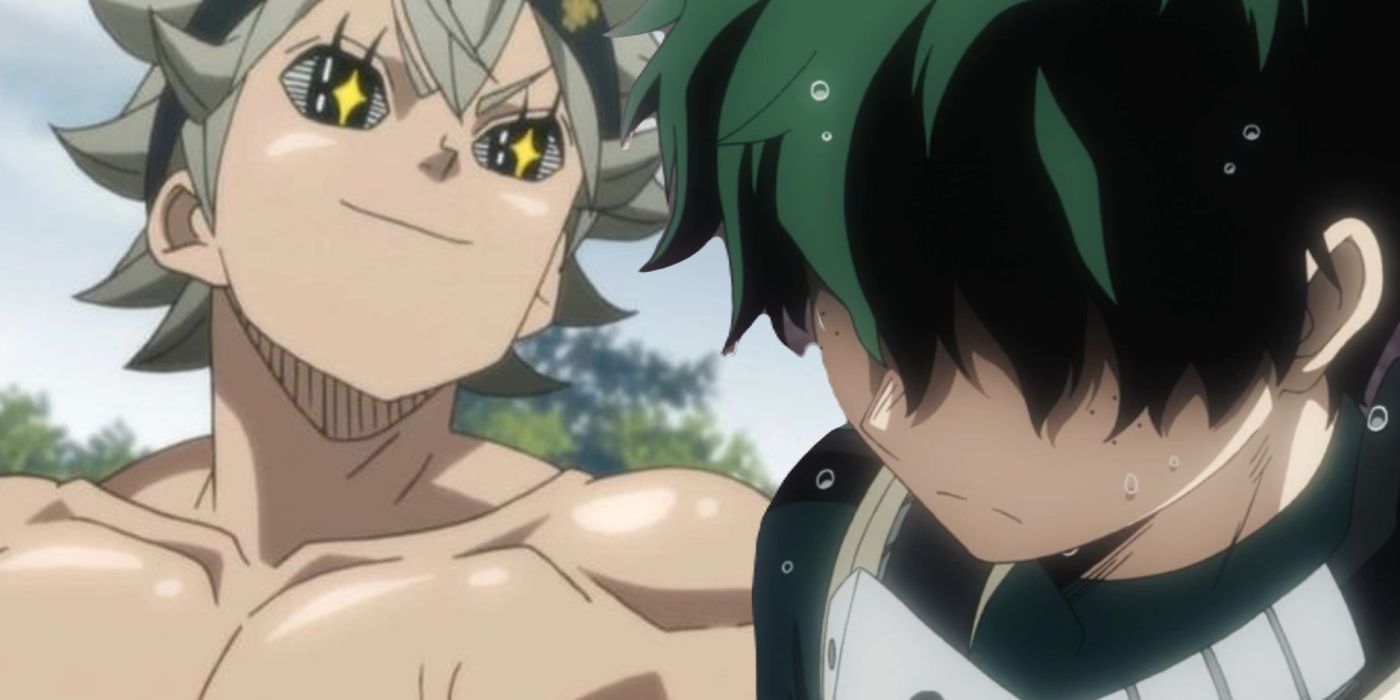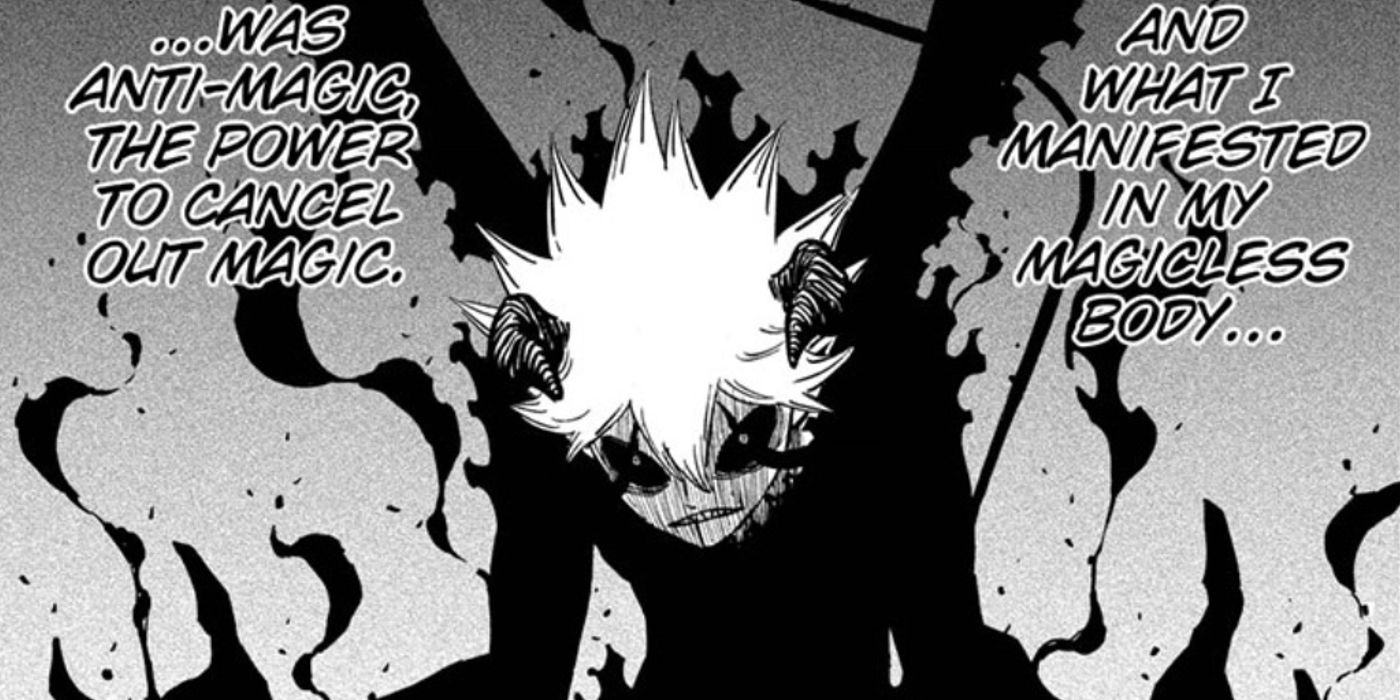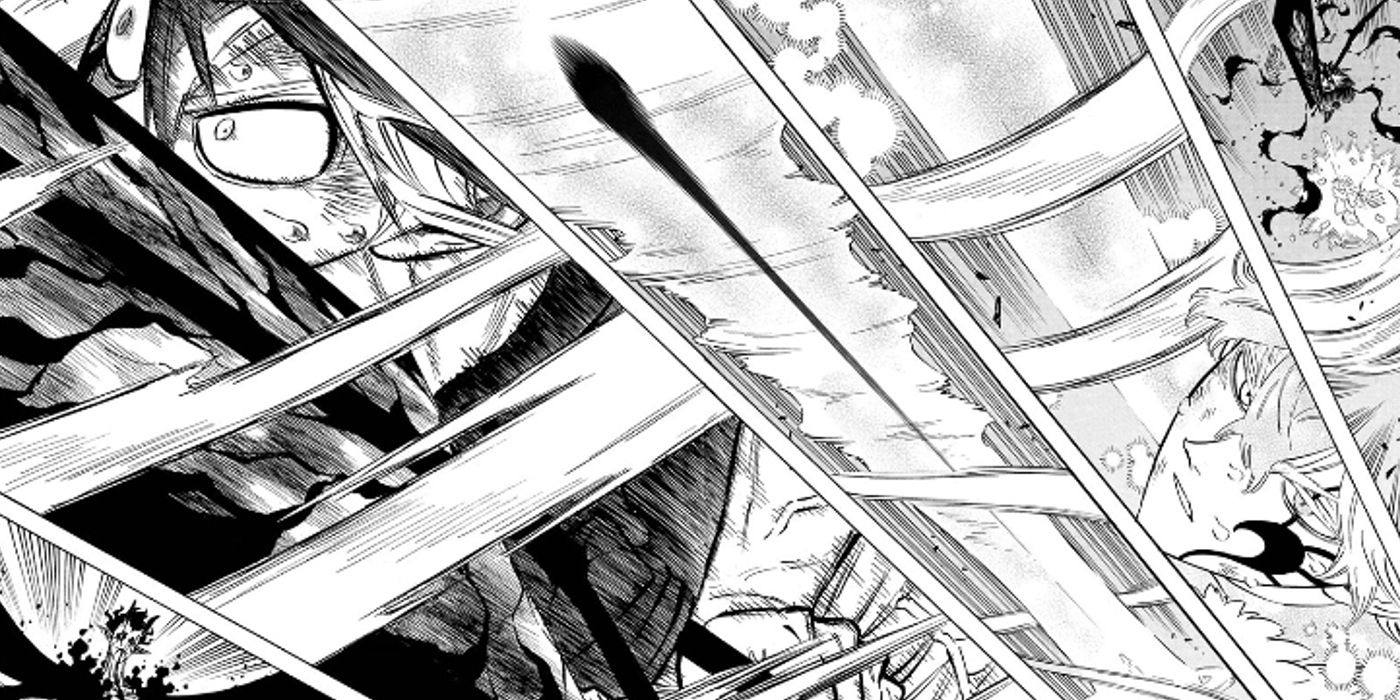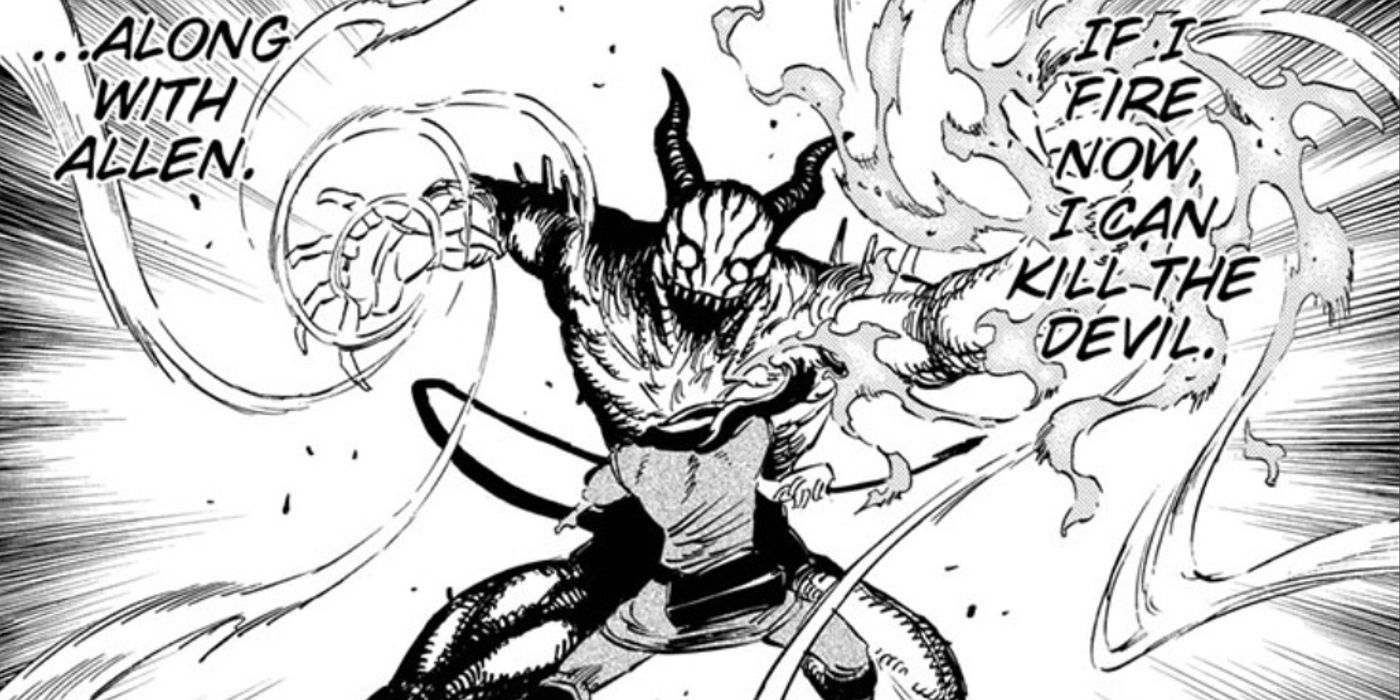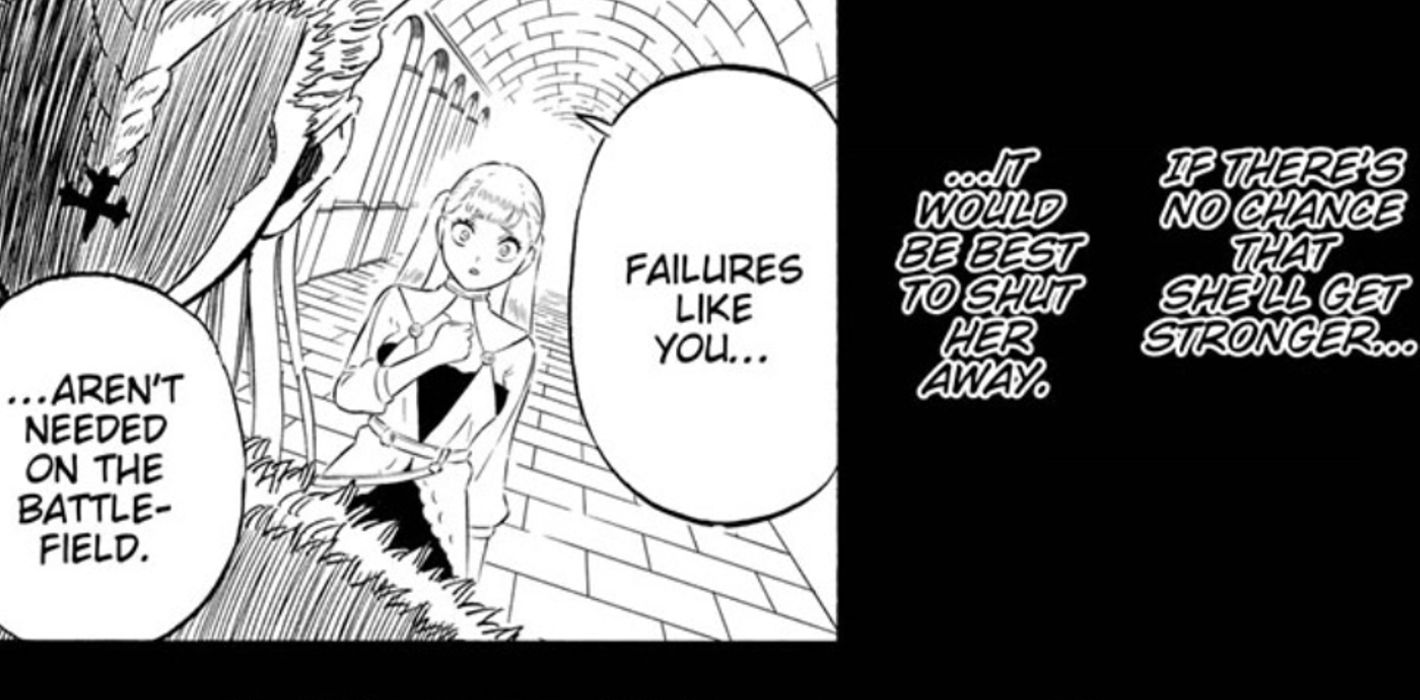Warning! Massive spoilers for My Hero Academia and Black Clover!
Essentially every big-name manga like My Hero Academia continuously outsells Black Clover weekly, but there's no reason why this should be happening since the latter series actually does a better job of exploring certain topics and tropes than the more popular title.
Both series couldn't be any more different than they already are as Black Clover is set in a magical world while My Hero Academia transpires on Earth where people wield so-called "quirks." But the two are intrinsically linked as their heroes have no powers, which are the main drivers behind each of their respective worlds, and they are paired off against a particularly gifted rival. From there, the other correlations naturally fall into place.
Related: My Hero Academia Finally Admits Its Heroes Are As Bad As All For One
Heroes Born Powerless
Not only does Black Clover keep readers in suspense about the truth behind Asta's powers for literally hundreds of chapters, but the explanation is more poetic than Deku's from My Hero Academia. His determination and desire to become the best hero was enough to convince his world's number-one hero All Might to go against his better judgement by giving Deku his One For All quirk instead of another student who was regarded as their world's savior at the time. It's appropriate that All Might was also born powerless, too. But even more importantly, the manga proves much later that Deku is actually the perfect inheritor as him not wielding another quirk enables him to brandish the quirks of every One For All predecessor.
However, the truth behind Asta's anti-magic, as revealed in chapter 268 of Black Clover, is just too compelling to be considered lesser or equal to Deku's. Similar to how Deku is the perfect user to wield One For All, Asta is literally the only person who can use anti-magic, as this power naturally seeks out and destroys magic. There's also something poetic about how the future of his world—which is driven by magic—is predicated on the utilization of its antithesis. But the most touching and profound truth behind anti-magic is how it came to be. As revealed in later chapters, a devil later known as Liebe is just like Asta. He had no magic and was ridiculed by his betters just like Asta was. It was only after a human (who shall remain nameless here) sealed the devil for his own protection that Liebe created his anti-magic just by hating devils so profoundly. It's quite moving that Asta obtains this power from a devil who shares his same tragic past.
Rivalry
Both manga pair their heroes Deku and Asta with a more powerful and talented rival, Katsuki Bakugo and Yuno, respectively. Ironically, My Hero Academia's rivalry was originally miles ahead of Black Clover's for hundreds of chapters just because of how much Bakugo hurt Deku emotionally. Even though Bakugo was much stronger than Deku, he had his own flaws that kept him from being the best. In comparison, Asta and Yuno's relationship put a heavier focus on the "friend" aspect of the term "frenemy." Yuno began more in the same vein of Bakugo, but once Asta received his anti-magic grimoire, that negativity melted away. In addition to this being disappointing, Yuno was just overly powerful to an absurd degree that removed a certain edge to their rivalry in the worst possible way.
But as Black Clover progressed, it became clear just how important Asta is to Yuno. The progression is much more subtle since the rivalry isn't as bitter, but the impact is far greater as a result. The fact that the reader is still deeply affected by these later epiphanies (despite how close the two already are) is proof of more effective storytelling. Most My Hero Academia fans will undoubtedly point to the massive moment when Bakugo apologizes to Deku. Aside from the fact that the apology is bogus, it fails to improve their rivalry. During his apology, Bakugo revealed that the reason why he hurt Deku was because he feared Deku. This greatly contrasts, in a bad way, to a stunningly poignant moment in chapter 308 of Black Clover when the only thing that gets Yuno up after being soundly defeated is the promise he made with Asta. Moreover, Black Clover further illustrates Yuno and Astra's closeness more poetically more than 100 chapters earlier by how Yuno's magic perfectly pairs with and augments Asta's anti-magic during their battle against the first devil Zagfred.
Related: All Might is Finally Fixing a Major My Hero Academia Villain Problem
The Redeemability of Villains
Partly why My Hero Academia resonates with so many is that the manga (even the movies) humanize a majority of its villains. Undoubtedly, the villain who captured the most hearts is Himiko Toga. Her situation is especially tragic since she shows her affection for others through a particularly distasteful deed. Sucking blood like a vampire allows her to assume the form (and even the powers) of those whose blood she devours. The climax of Himiko's tragedy transpires when she does this with the hero Ochako Uraraka, and when the villain excitedly shares this information with her, the hero reacts so vehemently that Himiko is clearly hurt, breaking the hearts of readers everywhere.
Black Clover not only does this as well but takes this dynamic to another level by having its villains actually reform. Casual fans are only aware of the tragedy surrounding Mars, but he's only the tip of the iceberg. The next major villains, the Eye of the Midnight Sun, turn out to have been manipulated by its leader Licht who was only using them as sacrifices to initiate a massive reincarnation of elves for revenge. Some of the Eye's surviving members later join the mages of the Clover kingdom to atone for their sins, while others, like Sally, easily switch sides for absurd (but adorable) reasons. But then, Black Clover actually turns the victimizing elves into the actual victims after the manga reveals that terrifying devils were manipulating them to create havoc. Now, they are helping the Clover kingdom fight against the Dark Triad. Even though it's still too early for these members to reform, the manga somehow manages to make readers feel sorry for them, and they are much more despicable than the evildoers in My Hero Academia. How Black Clover is able to humanize people who are hosting despicable devils that have cursed numerous families, using their own people as fuel, and endeavoring to open the gates of hell is nothing short of masterful.
Discrimination
Mostly through Bakugo, My Hero Academia explores discrimination by how society looks down on those who are quirkless. There have also been a few panels devoted to exploring quirk bigotry in the wake of a massive prison outbreak. More recently, the motivation behind the Aoyama family choosing to make a deal with the villain All For One was so their son Yuga wouldn't be ostracized.
Black Clover delves much further than My Hero Academia into this highly controversial topic. (Ironically, the strongest example of discrimination was explored in the movie World Heroes' Mission.) Meanwhile, Black Clover's world is modeled on a segregated class system mostly based on magical abilities, where even powerful mages like Asta are still discriminated against for being a peasant or commoner, to the point where royal allies and those in the nobility are portrayed more as villains than friends. This unfortunate mindset even infects families. But further complicating this already complex dynamic is the relationship between the powerful Nozel and his sister Noelle of the noble Silva family. Originally, readers believed he treated her terribly for Noelle's inability to control her magic, but, in truth, he only leveraged this form of hate to protect her against a terrible curse, proving just how strong and believable it would be for a family member to condemn another on the basis of their powers. This isn't even mentioning the fact that even the realm of the devils share the same despicable outlook.
Related: Black Clover: 10 Saddest Things About Asta
These are just some of the many ways in which Black Clover more effectively explores the same themes as My Hero Academia. Hopefully, the market will one day more accurately reflect each manga series based on their content as opposed to their name recognition.

